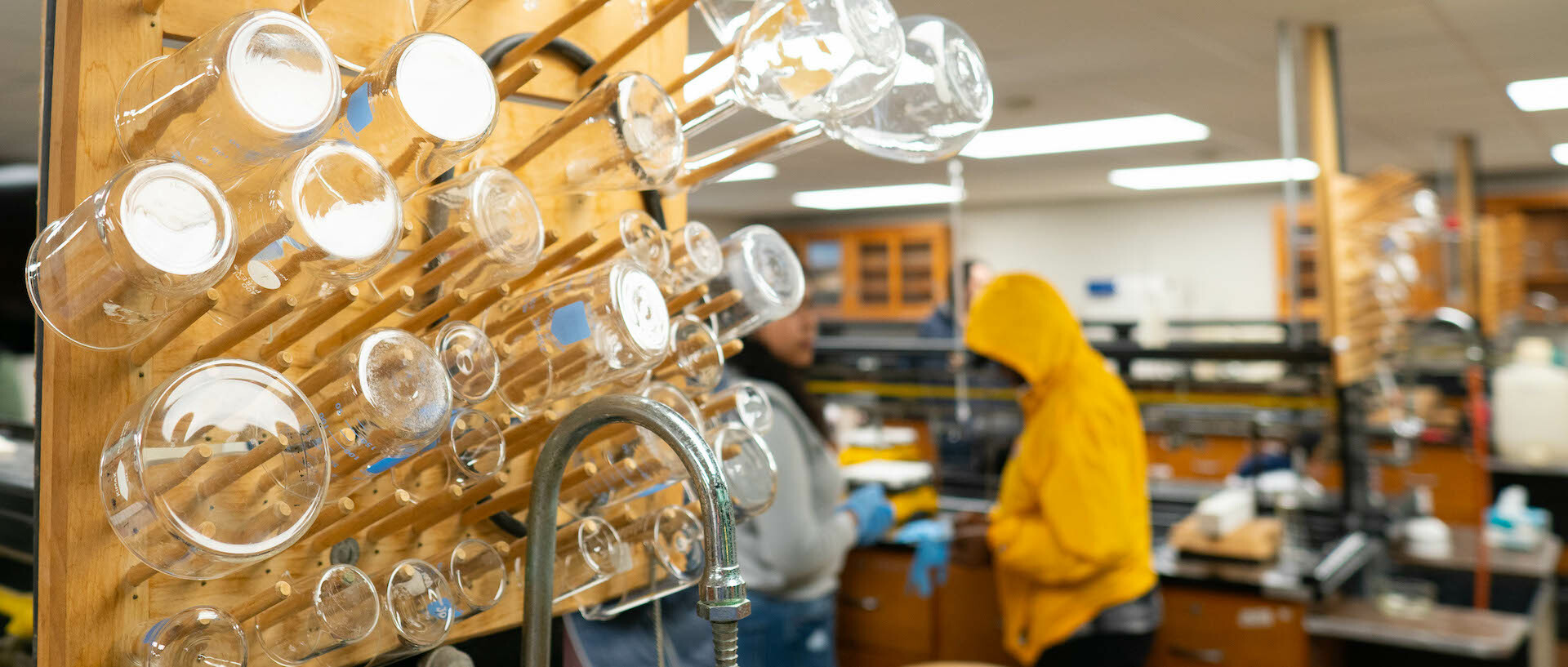
Chemistry (BA)
Get hands-on with chemistry.
Chemistry is the study of matter at its most fundamental levels, tracing the interactions and reactions that define our world—from the simplest elements to complex organic compounds. As a BA in Chemistry student at SWU, you’ll gain a robust foundation in chemical theory while honing your skills in hands-on laboratory experiences. You’ll explore topics in organic, inorganic, analytical, and physical chemistry, all within a Christ-centered learning environment that integrates faith and science.
With personalized attention from our dedicated faculty, you’ll have access to research opportunities, modern lab equipment, and mentorship to guide you toward your calling. Whether you aspire to work in industry, pursue graduate studies, or teach future generations, you’ll be well-prepared to succeed. You’ll also experience the wonder of discovering how God’s ordered creation reflects His character—one molecule at a time.
The Chemistry (BS) program is approved to receive the Enhanced Scholarship for LIFE Scholarship and Palmetto Fellows.
Graduate Study
- Biochemistry
- Biology
- Chemistry
- Clinical laboratory sciences
- Engineering
- Environmental sciences
- Forensic sciences
- Medicine
Career Paths
- Analytical chemist
- Chemical engineer
- Chemistry teacher
- Crime lab assistant
- Food and drug inspector
- Food technologist
- Forensic chemist
- Laboratory coordinator
- Materials engineer
- Medical chemist
- Quality control chemist
- Petroleum engineer
- Polymer engineer
- Renewable energy engineer
- Research chemist/scientist
- Textile technologist
- Toxicologist
- Water purification chemist
Graduates of the Chemistry program will be able to:
- Demonstrate mastery of the fundamentals and application of current chemical and scientific theories in organic and inorganic chemistry, physical chemistry, and analytical chemistry.
- Demonstrate technical knowledge by designing, carrying out, recording, and analyzing the results of chemical experiments.
- Locate, comprehend, and communicate about scientific literature, including presenting literature and laboratory findings in oral and written forms
- Analyze, synthesize, solve problems, and think critically using the scientific method.
- Use modern instruments to interpret infrared spectroscopy spectra, mass spectrometry spectra, and proton NMR spectra of relatively simple compounds, and use UV-VIS spectrophotometers, chromatography techniques, and electrophoresis.
- Apply gravimetric analysis and titration techniques in quantitative analysis.
